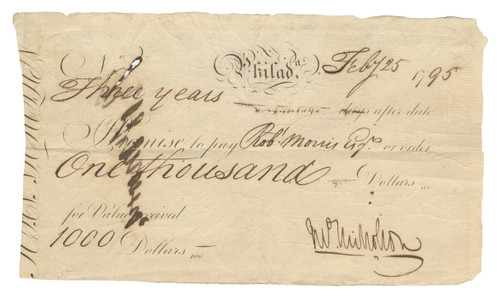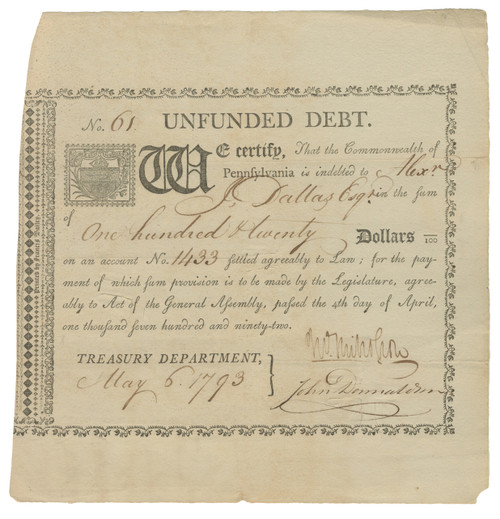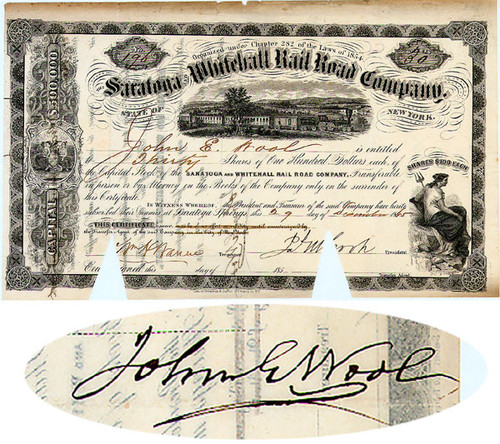1795, Philadelphia. 1 page. 7” x 4”. Partly-printed document signed being a promissory note payable to Robert Morris in the amount of $1,000 and endorsed by him on verso. Signed by John Nicholson on the front.
Some crackling is evident in Morris’ signature with tiny hole due to loss of paper which has been deteriorated by the high iron content ink. This is not untypical of Morris signed material. Fine but for this flaw.
MORRIS, ROBERT (1734 - 1806). Revolutionary War financier, often called "The Financier of the American Revolution"; Signer of the Declaration of Independence, the Articles of Confederation and the U.S. Constitution; Land speculator. Morris first gained attention when he headed two of the Continental Congress' most important committees (1776-1778), one to obtain war materials, and the other to instruct overseas diplomats. He was one of the best known merchants in the colonies, and thus his business experience led to his appointment as superintendent of finance in 1781. Morris' shrewdness and personal reputation were enough to secure the funds required for the colonies to successfully prosecute the war against Britain. He left the Continental government in 1783, and served as U.S. Senator from Pennsylvania 1789-1795. Even before leaving the Senate, however, Morris, in partnership with others such as John Nicholson, became heavily involved in land speculation, believing that there was a fortune to be made by selling land in the growing U.S. The demand for land, however, was not what Morris had hoped for, and eventually he was unable to pay his massive debts and went bankrupt, spending 1798-1801 in debtor's prison.
NICHOLSON, JOHN (d. 1800). State official; Land speculator. Nicholson was a shady Pennsylvania state official who resigned all his state offices in 1794, having been impeached, but acquitted, by the Pennsylvania Legislature just prior to his resignation. At this time, Nicholson was reputed to be one of the wealthiest men in the country. In 1794-95 Nicholson joined with Robert Morris in a number of land speculation schemes which eventually bankrupted both men; Nicholson was sent to debtor's prison in 1800, and died there several months later.








